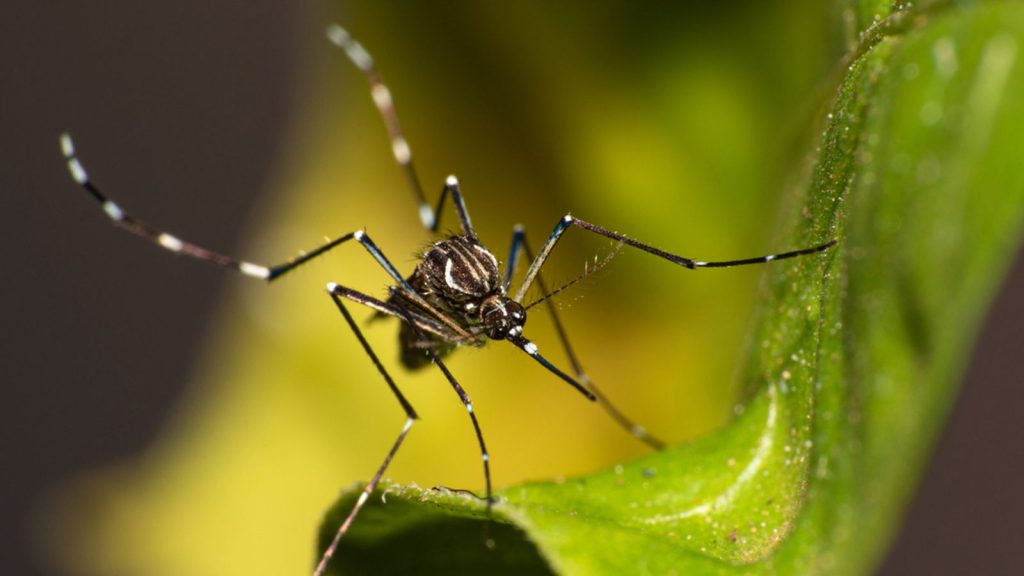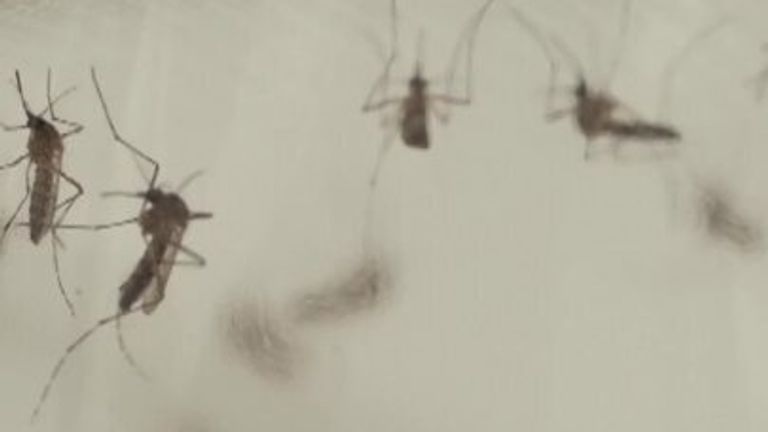Two species of disease-carrying mosquitoes have been found in the UK – and are spreading as the climate warms, scientists have warned.
Aedes aegypti, also known as the Egyptian mosquito, and Aedes albopictus, also known as the (Asian) tiger or forest mosquito, are known vectors of several diseases including yellow fever, dengue, chikungunya, Zika and dirofilariasis.
The species were detected in surveillance traps set by the UK Health Security Agency, a peer-reviewed study on invasive mosquito surveillance in the UK has revealed.
Egyptian mosquito eggs were detected in a freight storage facility near London’s Heathrow Airport in September 2023 – and tiger mosquitoes were seen in August 2024 – for the first time since 2019 – at a motorway service station in Kent.
The findings were reported in the study – by the UKHSA and the Centre for Climate and Health Security.
Historically, both species were limited to subtropical and tropical regions, however, the tiger mosquito has now established populations across parts of southern and central Europe, demonstrating its ability to survive in temperate climates.
Rising temperatures and milder winters may increase northward incursions of invasive species, putting new populations at risk of disease transmission.
The authors said: “While there is currently no evidence that Ae. albopictus or Ae. aegypti are widely established in the UK, without timely action, the UK faces the risk of invasive mosquito populations becoming established… proactive measures enhance resilience against emerging vector borne disease risks.”
Alongside active surveillance at ports and land transport sites in England, Wales and Northern Ireland, the UKHSA also has traps on the Kent marshes – seen as a prime site for any mosquitoes taking up residence because it’s warm and wet.
Sky News’ science correspondent Thomas Moore joined mosquito hunters at a marsh in North Kent in September 2023.
The UKHSA also runs the Mosquito Recording Scheme (MRS). The citizen-science project receives and identifies mosquitoes submitted by members of the public, including in response to nuisance biting incidents.
The aim of the scheme is to detect unusual or invasive species, provide a log of reportable incidents of nuisance mosquito biting, and gain insight into the seasonality of incidents.
Between 2005 and 2021, 286 reports of mosquitoes were submitted to the MRS, all of which were native UK species.
Read more:
Mosquito bite warning after rise in chikungunya cases
West Nile virus found in UK mosquitos for first time
Colin Johnston, the lead author of the study and senior medical entomologist at the UKHSA, said of the 2023 and 2024 discoveries: “Each detection triggered enhanced local surveillance and control measures, and the fact that no further specimens were found suggests these were isolated incursions.”
He added: “The collaborative efforts between UKHSA, local authorities and landowners were key to rapidly mobilising and preventing the establishment of invasive mosquitoes.”
The study was published in research journal PLOS Global Public Health.



